When choosing a wood for your custom table, the easiest part of the decision making process is picking the color of the wood. Now that you’ve gotten that decision out of the way, it’s time to consider a few other important factors so that you can make the best possible decision for your table.
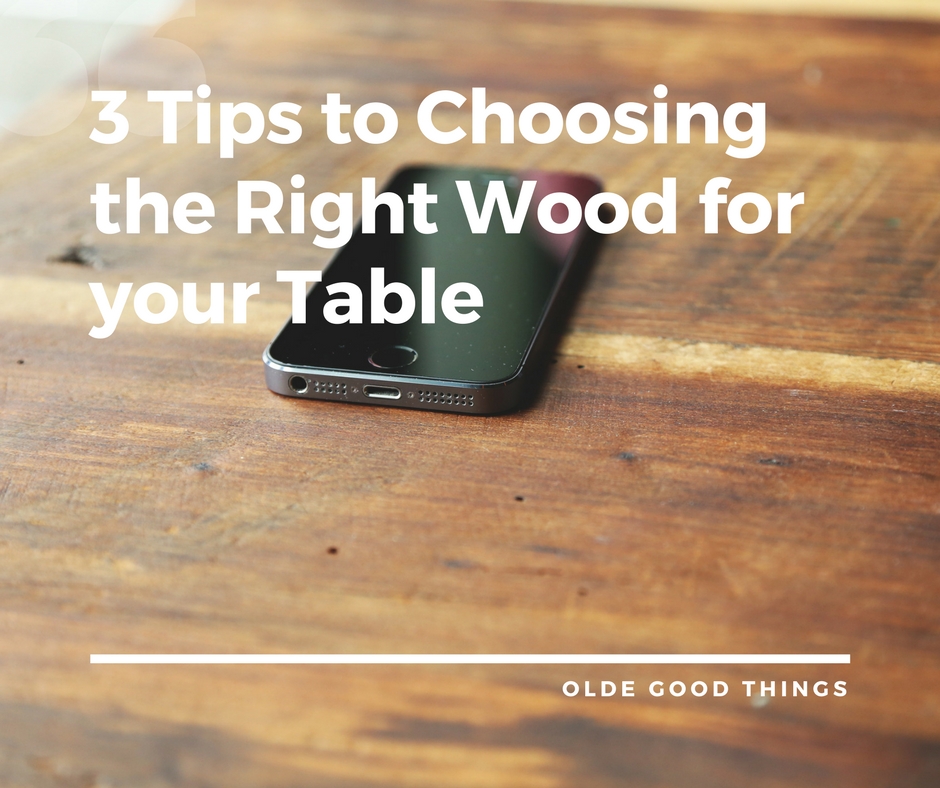
The three main factors involved in buying the right tabletop are durability, grain, and cost.
Durability is measured in the hardness of the wood via The Janka hardness test measures the resistance of a sample of wood to denting and wear. The higher the number on the scale, the harder and more durable the wood.
Woodgrain is the arrangement of the wood fibers, denoting the texture of the wood. The wood pores that determined if it’s open or closed-grain. Larger pores are considered open grain and are visible to the naked eye. Smaller pores create a closed grain.
When considering the cost for your new table or desk, it is important to keep in mind that the wood utilized is solid wood (as opposed to the less expensive particle board wood commonly used in mass-produced tables) has been salvaged and is not virgin wood. Olde Good Things is consciously utilizing practices to avoid deforestation where possible. The cost of each hand-crafted table is reflected in the craftsmanship and quality of each table and is indicative of the table’s longevity.
MAPLE
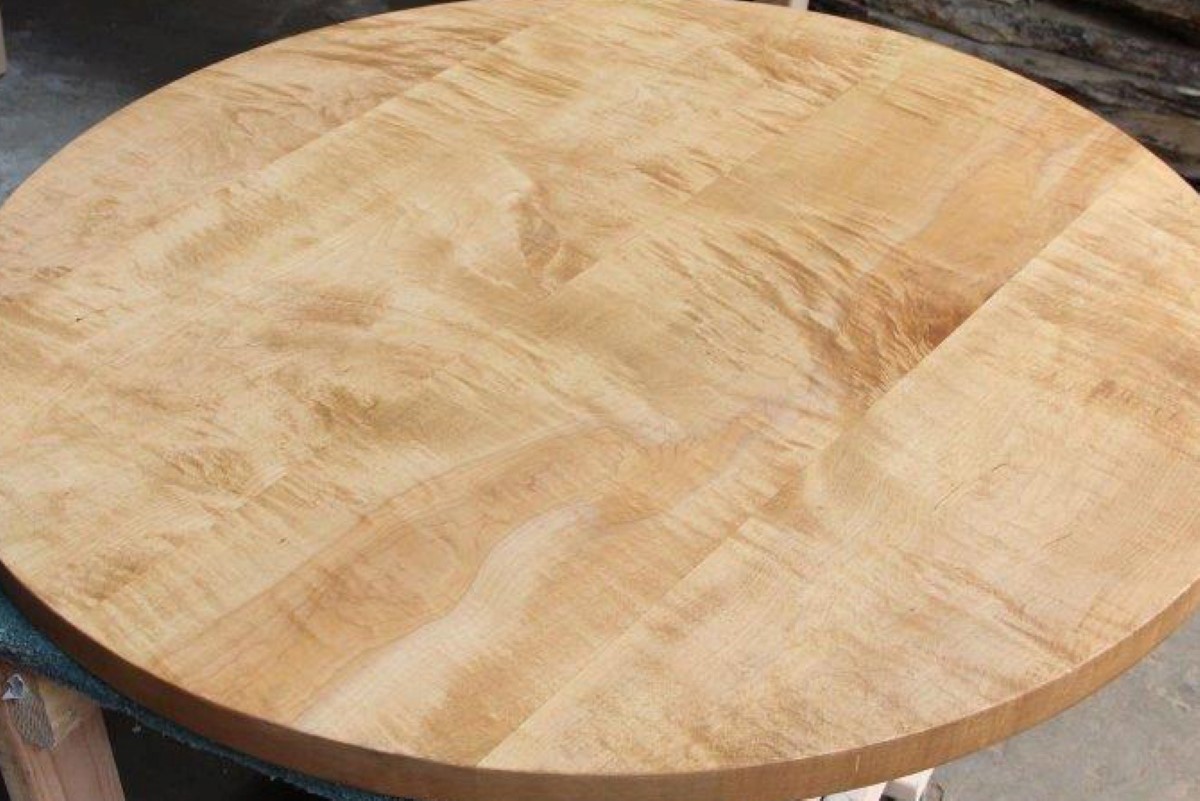
DURABILITY: One of the hardest woods typically used for high-use furniture such as cabinetry. Takes dark stain semi-well, but is known for being splotchy when applied. Moisture-resistant, maple is rated as non-durable to perishable, and susceptible to insect attack. Janka rating 1400-1500
GRAIN: Straight, closed-grain.
COST: Medium
OAK
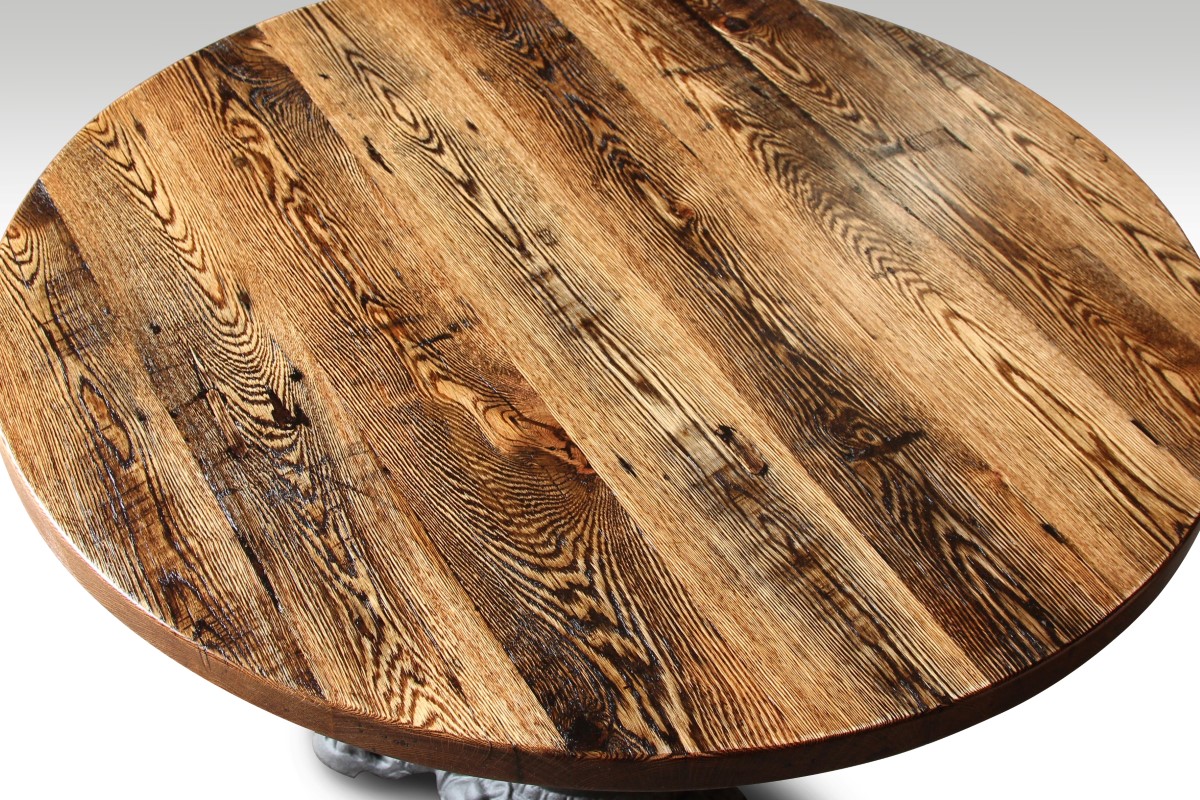
DURABILITY: Oak is a hard-wearing and heavy wood – able to withstand constant use. Most often cut in a way that makes it resistant to warping. Rated as non-durable to perishable, with poor insect resistance. Stains when in contact with water. Janka rating 1200-1300
GRAIN: It is known for having lovely open-grain markings.
COST: Medium
PINE
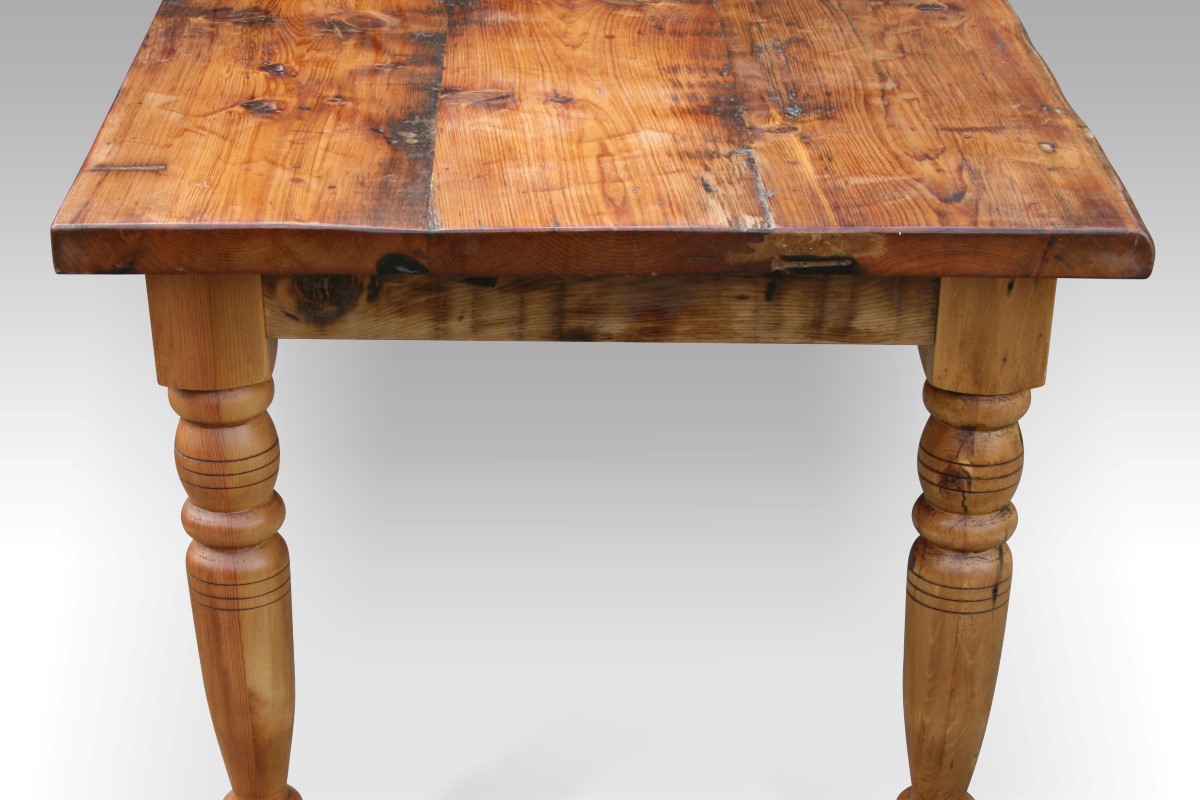
DURABILITY: Low-density, softwood. Prone to nicks and scratches. Takes paint and stain well. The heartwood is rated as non-durable to perishable in regards to decay resistance. Janka rating 300-400
GRAIN: Even, close-grained
COST: Low
WALNUT
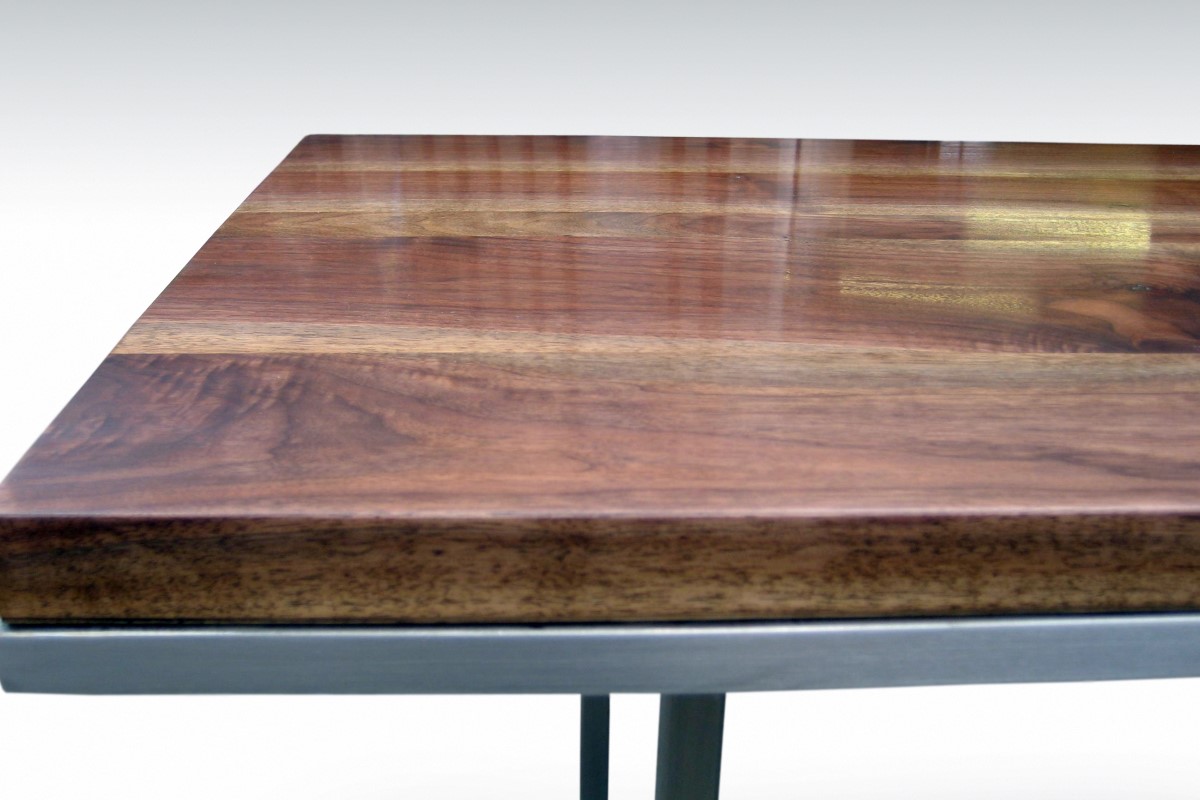
DURABILITY: Walnut is a hardwood known for its strength. Rated as very durable in terms of decay resistance, though it is susceptible to insect attack. Janka rating 1000-1100
GRAIN: Straight, open-grain. It has a medium texture and moderate natural luster.
COST: High
Watch a video on how to care for your wood tabletop
Take a look at our Farmhouse or Industrial table blog posts

